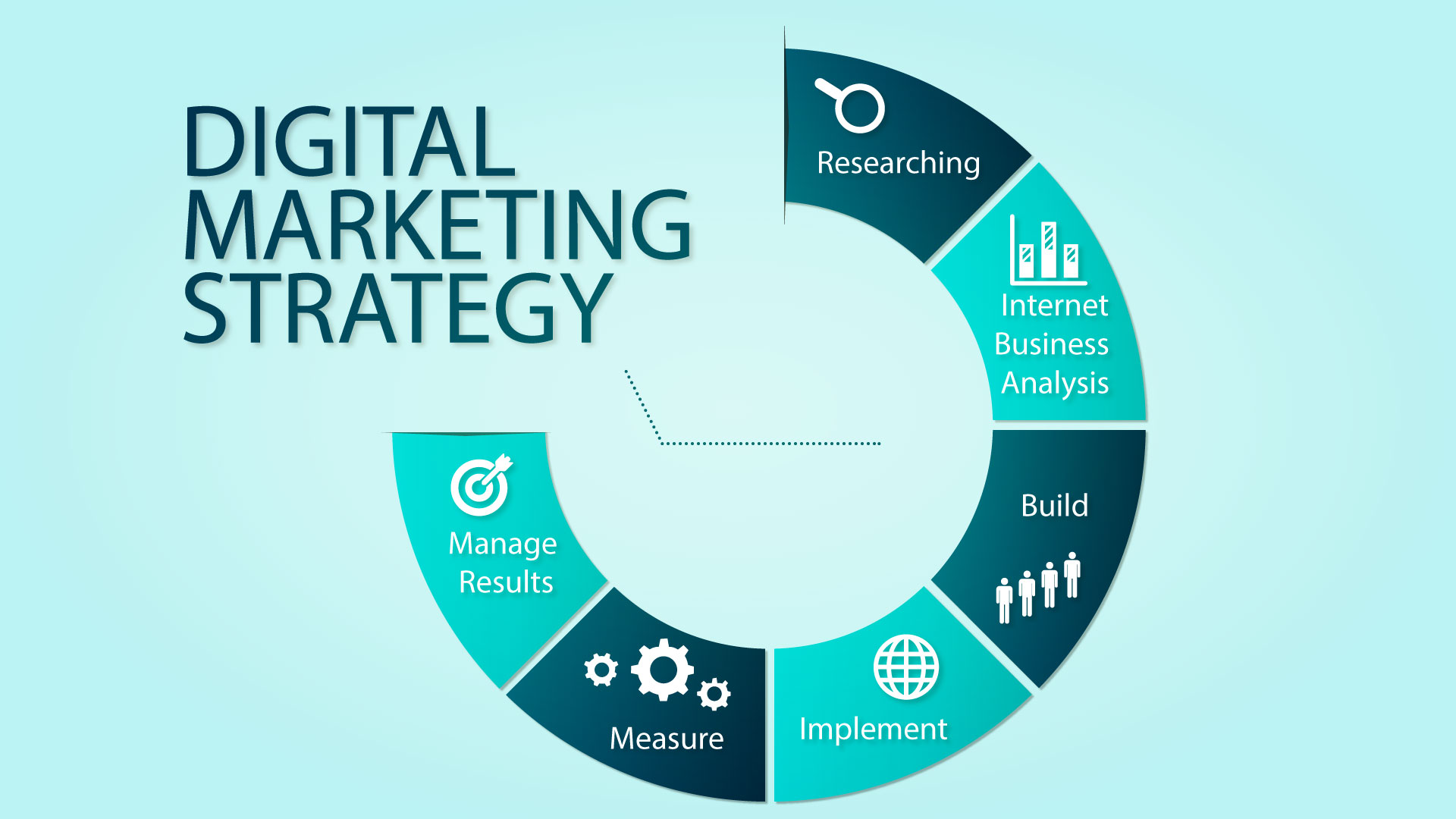Guide To Business Marketing: 6 Strategies That Will Help Reach The Target Audience and Grow Business

In the fast-paced world of business coaching, connecting with the right audience is paramount to success. Every entrepreneur and business owner has a unique set of challenges, making it essential for business coaches to tailor their services to meet specific needs. This article will explore five powerful strategies to help business coaches effectively reach their target audience, fostering growth and success.
1. Know Your Audience
A study found that only 42% of marketers know who their audience is, which is why many marketing campaigns fail. Understanding your target audience is the foundation of any successful business coaching marketing strategy. It guides your every move, ensuring your efforts are laser-focused on the right people. Here are specific procedures and best practices to delve deeper into understanding your audience:
1. Develop buyer personas: Create detailed profiles of your ideal clients, including age, profession, challenges, and goals. These personas provide a clear image of who you're targeting.
2. Conduct surveys and interviews: Directly ask your existing clients and potential leads about their needs and preferences. Surveys and interviews offer invaluable qualitative data to help exceed customer expectations.
3. Analyze social media insights: Utilize social media analytics to understand the demographics and interests of your followers. Platforms like Facebook Insights provide detailed audience demographics.
4. Utilize Google Analytics: Study website traffic patterns, visitor demographics, and behavior on your site. Identify popular pages and the geographic locations of your audience.
5. Monitor competitor strategies: Analyze what strategies are working for your competitors. Identify the audience they target and assess their engagement tactics.
6. Engage in online communities: Participate in forums, Facebook groups, and LinkedIn discussions related to your niche. Observe the questions and problems discussed to gauge common pain points.
7. Stay updated with industry trends: Keep abreast of industry reports and trends. Understanding what's currently relevant to your audience helps you align your coaching services accordingly.
8. Utilize customer relationship management software: CRM tools help you track customer interactions and preferences, enabling you to personalize your coaching services based on individual histories and needs.
2. Account-Based Marketing (ABM): A Tailored Approach
1. Personalization at Scale: ABM allows companies to craft bespoke marketing strategies for individual accounts, treating them as markets of one, thus significantly increasing the relevance and impact of their marketing efforts.
2. Enhanced Customer Experience: By focusing on the specific needs and pain points of each account, account-based marketing fosters a more personalized interaction, leading to a better customer experience and higher satisfaction rates.
3. Streamlined Sales Alignment: ABM narrows the gap between sales and marketing teams, ensuring that both are working cohesively towards the same goals, ultimately streamlining efforts and resources towards the most lucrative accounts.
4. Improved ROI Measurement: With ABM's targeted approach, tracking return on investment becomes clearer and more precise, as marketing efforts are directly linked to the specific accounts targeted.
5. Long-Term Relationship Building: By engaging deeply with key accounts, ABM promotes the development of long-term relationships, which are crucial for sustained business growth and customer loyalty.
3. Craft a Compelling Value Proposition

In the competitive realm of business coaching, your value proposition acts as the beacon that draws clients toward your services. It's the essence of what you offer, a promise that needs to resonate deeply with your audience. Here are key strategies to craft a compelling value proposition that leaves a lasting impression:
1. Identify unique strengths: Pinpoint your distinctive skills, expertise, or methodologies that set you apart. Focus on what you do exceptionally well and what makes your coaching unique.
2. Address specific pain points: Tailor your value proposition to address the most pressing challenges your target audience faces directly. Clearly articulate how your coaching solves these issues.
3. Quantify your impact: Use quantifiable results and testimonials to demonstrate the tangible benefits past clients have experienced. Numbers and real success stories enhance your credibility.
4. Be clear and concise: Craft your proposition in clear, jargon-free language. Potential clients should immediately understand what you offer and why it’s valuable to them.
5. Emphasize our experience: Highlight your track record, emphasizing your years of experience, successful cases, and any relevant certifications. Experience adds weight to your value proposition.
6. Focus on emotional appeal: Appeal to the emotions of your audience. Explain how your coaching solves problems and fulfills aspirations, bringing a sense of fulfillment and achievement.
7. Offer a unique guarantee: Provide a risk-reversal element, such as a satisfaction guarantee or a free trial session. A strong guarantee shows confidence in your services, reducing the perceived risk for potential clients.
8. Continuously refine and test: Your value proposition is not static. Regularly assess its effectiveness and be willing to adjust based on client feedback and market responses. A value proposition should evolve as your business does.
4. Utilize Digital Marketing Techniques

Navigating the digital landscape is imperative for business coaches aiming to reach a wider audience. An optimized online presence can be a powerful tool when utilized effectively. Here are the essential digital marketing techniques and strategies to enhance your reach and impact as a business coach:
1. Engage on social media platforms: Establish a presence on relevant social media platforms. Regularly share valuable content, engage with your audience, and participate in industry discussions.
2. Professional website development: Create a user/mobile-friendly website that is visually appealing and communicates your services, expertise, and value proposition.
3. Content creation and blogging: Most consumers (84%) want brands to produce content. Develop a content strategy that addresses common challenges that your audience faces. Regularly publish high-quality blog posts, articles, videos, or podcasts that provide insights, solutions, and actionable advice.
4. Search engine optimization: Use SEO analytics to Optimize your website and content for search engines. Use relevant keywords in your website copy, meta descriptions, and blog posts. Acquire backlinks from reputable sources to enhance your site's authority.
5. Email marketing campaigns: Build an email list of interested prospects and clients. Send targeted, valuable content via newsletters, updates, and promotions. Personalize emails to cater to specific segments of your audience, nurturing quality leads and fostering client relationships.
6. Pay-per-click advertising: Utilize PPC campaigns on platforms like Google Ads or social media platforms to target specific demographics. Craft compelling ad copies and use relevant keywords to drive traffic to your website or specific landing pages.
Also, take advantage of specialized tools, such as Octoboard’s PPC reporting software, in order to keep tabs on how your campaigns perform and make adjustments as necessary to improve ROI.
7. Video marketing: Embrace video content marketing to connect with your audience on a personal level. Create instructional videos, client testimonials, or live Q&A sessions. Videos enhance engagement and are highly shareable, expanding your reach.
8. Social proof and testimonials: Showcase client testimonials and success stories on your website and social media. Positive feedback from satisfied clients builds credibility and trust, encouraging potential clients to engage with your services.
5. Engage and Interact with Your Audience
Engaging with your audience goes beyond mere interaction – it's about creating meaningful connections. You can foster trust, loyalty, and advocacy among your clients by actively involving yourself and tailoring your approach. Here are effective audience engagement strategies:
1. Timely responses: Respond promptly to comments, messages, and queries on social media and emails. Timely responses demonstrate attentiveness and show that you value your audience's input.
2. Participate in discussions: Engage in industry-related discussions and forums. Contribute valuable insights, answer questions, and share your expertise. Being active in discussions positions you as an authority.
3. Encourage user-generated content: Motivate satisfied clients to share their success stories and experiences. User-generated content, such as testimonials and case studies, adds credibility to your services and resonates with potential clients.
4. Personalized communication: Tailor your communication to individual clients. Use their names, reference their specific challenges, and acknowledge their achievements. Personalization shows genuine interest and care.
5. Surveys and feedback: Regularly conduct surveys to understand client satisfaction levels and areas for improvement. Act on feedback received, showcasing your commitment to providing exceptional service.
6. Live Q&A sessions: Host live Q&A sessions on social media or webinars for lead generation. Allow your audience to ask questions in real-time, providing immediate solutions and building a sense of community.
7. Social media polls and challenges: Conduct polls and challenges related to your coaching niche. This interactive approach engages your audience and provides valuable insights into their preferences and opinions.
8. Exclusive Content for Subscribers: Offer exclusive content, such as e-books, webinars, or discounts, to your email subscribers. This incentivizes people to subscribe while providing added value to your existing audience.
6. Analyze and Adapt
Analyzing and adapting based on data-driven insights is the cornerstone of a successful marketing strategy. In the digital age, businesses have access to a wealth of information. By harnessing this data, you can refine your approach, ensuring it aligns with your audience's preferences and needs. Here's how you can effectively analyze and adapt your marketing efforts:
1. Utilize advanced analytics tools: Invest in analytics tools like Google Analytics, social media insights, and the best email marketing platform. These tools offer detailed data on website traffic, user behavior, social engagement, and email campaign performance.
2. Monitor key metrics: Keep a close eye on vital metrics such as website traffic sources, bounce rates, social media reach, email open and click-through rates, and conversion rates. These metrics provide actionable insights into your audience's interactions with your content and services.
3. Gather and analyze customer feedback: Seek client feedback through surveys, emails, or direct conversations. Analyze their comments, suggestions, and pain points. Feedback provides qualitative data essential for understanding customer satisfaction levels.
4. A/B testing: Implement A/B testing in your marketing campaigns. Test elements such as headlines, calls-to-action, email subject lines, or social media ad formats. Analyze the performance of each variant to determine what resonates best with your audience.
The Next Step: Create a Powerful Business Coaching Marketing Strategy
Reaching your target audience as a business coach demands a thoughtful and strategic approach. You can create a robust marketing strategy that drives business growth by understanding your audience, crafting a compelling value proposition, utilizing digital marketing techniques, engaging actively, and analyzing data.
Remember, the key lies in genuine connections and personalized approaches. Implement these strategies diligently, and you'll find your business coaching services reaching new heights of success.

![750+ Analysis Pictures [HD] | Download Free Images on Unsplash](https://images.unsplash.com/photo-1588600878108-578307a3cc9d?ixlib=rb-4.0.3&ixid=M3wxMjA3fDB8MHxzZWFyY2h8NHx8YW5hbHlzaXN8ZW58MHx8MHx8fDA%3D&w=1000&q=80)




